Jessica Pratt, out of the L.A. underworld and into a (gentle) wall of sound
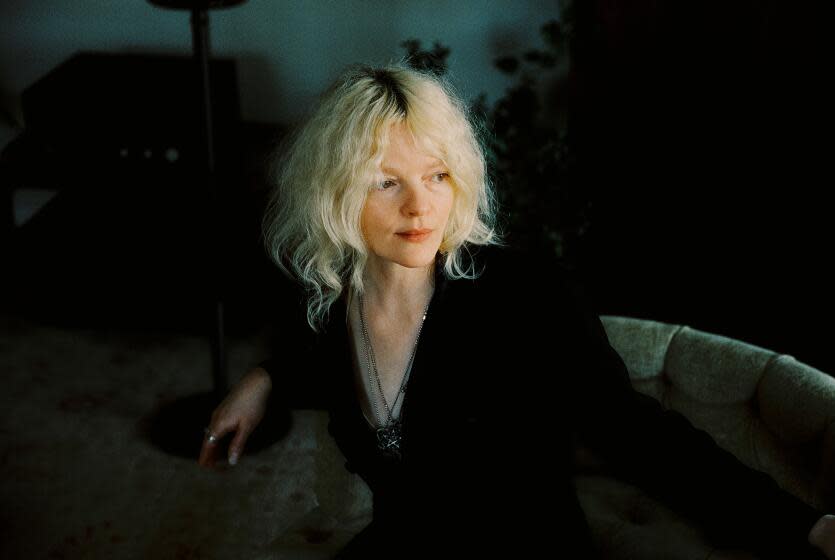
Walking south on Vine Street past the Capitol Records Building, musician Jessica Pratt was reminded of the first time she visited her current home of Los Angeles.
It was 2011, and she had recently watched “Mayor of the Sunset Strip,” a documentary about the infamous DJ and nightclub owner Rodney Bingenheimer, which lays bare the glitz and sleaze of the ’70s music scene. It also features outsider figures, like Ronald Vaughan, a friend of Bingenheimer’s who has self-released music as “Isadore Ivy, Spaceman at Large.” Still taking in L.A.’s strange frequencies, Pratt saw Vaughan wandering outside the Capitol Building — probably not there on business, or was he? — and couldn’t help but be starstruck. “I was like, ‘Wow,’” she remembered, “‘I’ve really made it in Hollywood.’”
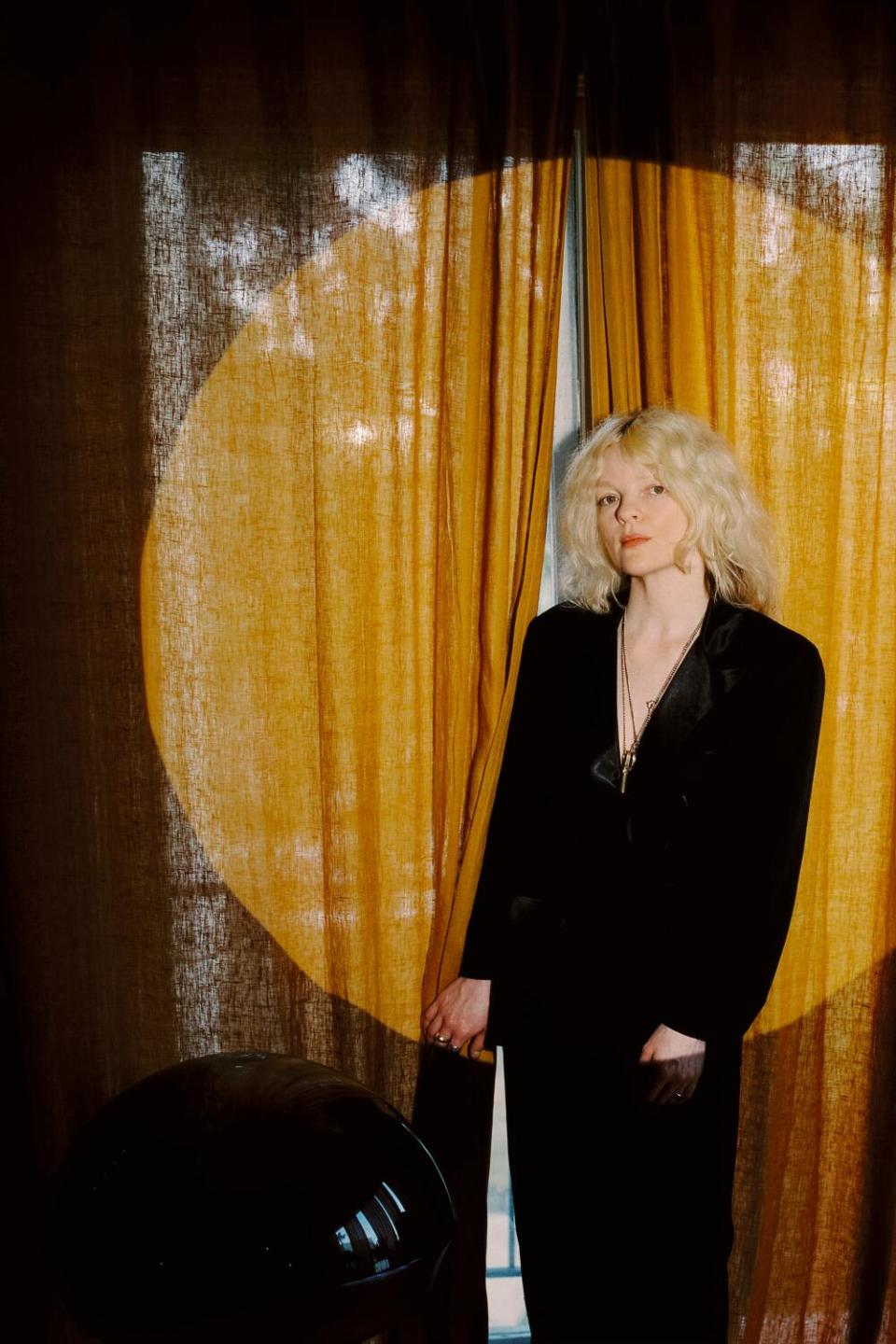
Pratt, whose new album, “Here in the Pitch,” is an anachronistic, dreamlike blend of folk music and chamber pop, is no longer a true outsider herself. But she hangs tight to a love of the bizarre L.A. underworld that often glitters in broad daylight in places like Hollywood. Pratt still looks as if she belongs to it too; as we headed toward Musso & Frank Grill, in search of a spot at the bar, her vintage boots clicked on the pavement and her bleach-blond hair shone in the springtime sun.
“I wear a lot of juniors department mall clothing from the ’90s,” she said, describing her trademark black-suit look. Due to the changing of thrift-store eras, she explained, it was becoming more difficult to find what she liked. “Which is sad,” she added, “because it’s how I get a lot of my trousers.”
Pratt, 37, mainly grew up in the Northern California town of Redding but felt the allure of Hollywood before she ever stepped foot in the place. “Hollywood is tumblin’ down,” she sang on the song “Hollywood,” from her self-titled debut LP, which was recorded in 2007, when Pratt was 19.
A stroke of good fortune led to the record’s belated release in 2012: Tim Presley, the musician known as White Fence, heard the music through a distant connection and decided to put it out himself. Pratt’s early catalog, bolstered by the more deliberate 2015 album “On Your Own Love Again,” bewitched a devoted fan base into existence with a minimal approach (mainly just nylon-string guitar and vocals) that hasn’t been particularly viable since Leonard Cohen arrived in the late 1960s.
“It was definitely like stepping into a tapestry or a quilt or something,” said musician Angel Olsen, describing the feeling of discovering Pratt’s records. “The way her voice and harmonies continue in an endless stream — the way that her melody lines continue, like little separate rivers — it’s really wild.”
Pratt’s 2019 album, “Quiet Signs,” subtly expanded the palette, adding touches of instruments like piano and flute; from the outside, it felt like a fuller sonic realization of someone in control of a grand vision. But when Pratt hears that record now, she’s brought back to some of the toughest years of her life.
In the time leading up to “Quiet Signs,” Pratt explained, she was dealing with the death of her mother and subsequently suffered from a period of poor health. She also was navigating the rekindling of a relationship with her father, who left the family when Pratt was 5 and became completely estranged when she was 14. (Her father wore his body down with addiction issues and eventually died of COVID-19 in 2020.) Pratt was “running on fumes,” she said, unable to write music. “I tried to, but I didn’t really have the juice.”
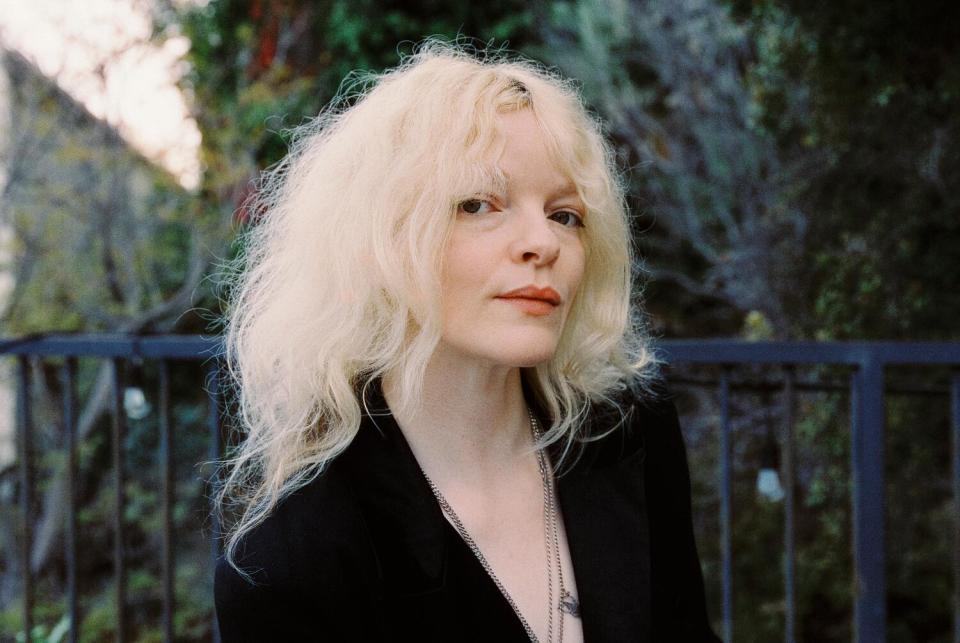
Helping her convalescence was Matt McDermott, whom Pratt had met when they were working together at Amoeba Music in Hollywood in 2014. Pratt was at Amoeba for only a short time, at one point helping with the events (“I’d be getting ‘Weird Al’ bottles of water or whatever”), but stayed friends with McDermott. The two eventually became involved romantically, and they’re now engaged.
Alongside Pratt’s co-producer Al Carlson, McDermott ended up providing an ancillary musical hand in the studio on “Quiet Signs.” And for “Here in the Pitch,” the trio didn’t mess with the formula — except this time, Pratt’s music was coming together with a brightness and vigor that wasn’t there before.
“I think she’s grown stronger during this whole period,” McDermott said over the phone from the home he and Pratt share in Elysian Heights. “And now you can really hear it, where her songs have a swagger that wasn’t there in the past.” He laughed, recalling Pratt coming back in the door one day and telling him, “I just walked around the block listening to [Frank Sinatra’s] ‘My Way’ five times in a row.”
The swagger is clear from the opening sounds of the record: a “Be My Baby”–style drum intro to the song “Life Is,” which is particularly notable for being the first time Pratt has featured percussion in her music. But the drums quickly retreat, and the record is at points sparse and sinister. In other words, it’s still clearly a Jessica Pratt production — one where restraint is just as much a factor as the ornate melodies and her idiosyncratic voice.
“Here in the Pitch” runs just 27 minutes, and Pratt spent three years making it, returning over and over to a studio in New York, tinkering with every arrangement, waiting until it all felt just so. In an age of streaming freneticism — when people hardly blink when Taylor Swift releases a 31-track double album — it feels particularly jarring to be given a slice of something so clearly unconcerned with maximizing every aspect of itself.
“Just because of the machine we’re up against,” said Ryley Walker, a notable indie-rock figure who also plays guitar on “Life Is,” “my tolerance for long amounts of time in between music has been totally sizzled and evaporated. Jessica has the gift from God of patience.”
Pratt said she was “certainly happier and more present making this record,” but she still sees the gloom lurking within the music too. The title “Here in the Pitch” refers in part to pitch darkness, and Pratt said she envisions the phrase as “a threat or welcoming you into some shadowy realm.” There’s something conspiratorial in a song like “World on a String,” which plods forward with a slow menace, as inviting as it is eerie. “I want to be the sunlight of the century,” Pratt sings on that track, her claim becoming complicated in the song’s video, which appears to be a hazy, colorful depiction of a cult meeting of some kind. It ends with Pratt, the presumed cult leader, in a coffin.
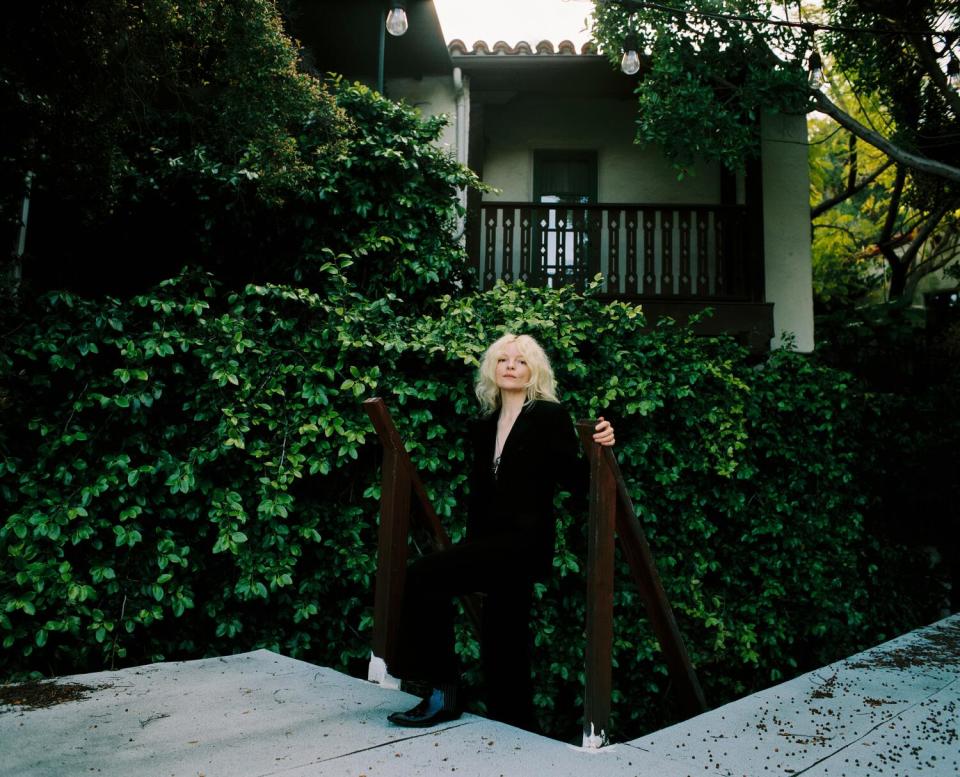
When asked about the cult element, Pratt is unabashed in the way that her fascination with Charles Manson was drifting around in her mind while making this record. There’s the ordinary human-nature element of being interested in “sordid, frightening things,” of course. But Pratt’s fascination also is guided by the way that, from a certain perspective, you start to feel sorry for the members of the Family, heinous as they were to innocent people. “I don’t know, man,” she said, “I think a lot of people could fall into the same thing. To me, it’s no different than being in a gang or something, and killing people and going to jail for that.”
Pratt likewise can’t deny that Manson’s nylon-string and vocals song “Look at Your Game, Girl” influenced her music — particularly her breakthrough 2014 track, “Back, Baby,” which was recently sampled by pop star Troye Sivan. “I think [Manson] really did it with that one,” she said, “and then he never did it again.”
Manson, who generated some genuine interest as a songwriter before turning on the world, is perhaps the ultimate L.A. musical outsider. His story is a grim reminder of how poisonous the business can be to those looking to make it — but Pratt can’t help but feel somewhat uncomfortable in finding herself on the more fortunate side of things.
“[This is] the first time I’ve ever had the big industry push,” she said, sitting at the Musso & Frank bar, doodling little stars and hearts on a napkin. “It kind of freaks me out a little bit, I won’t lie.”
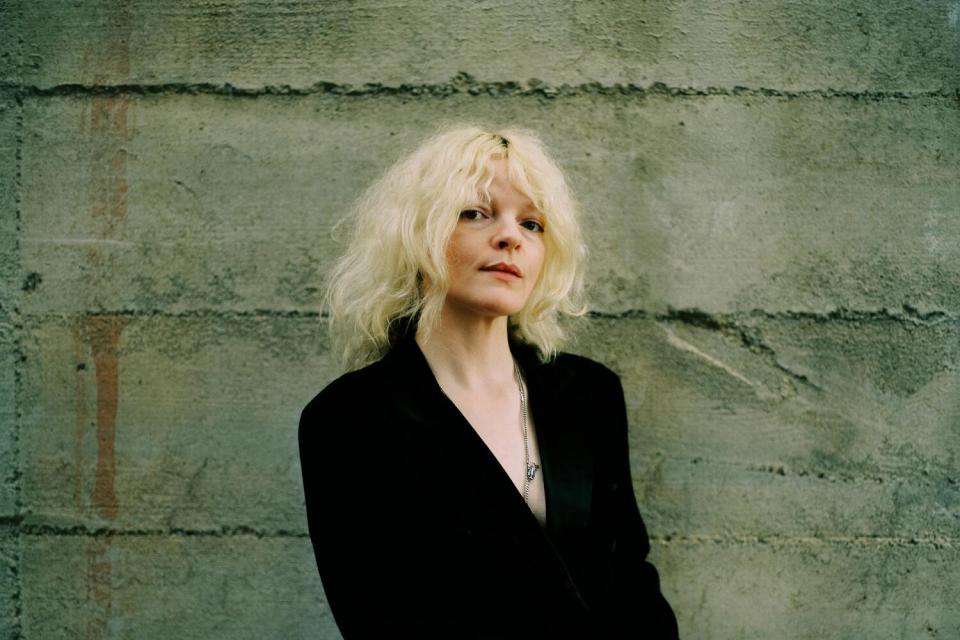
Usually, when Pratt is asked what her songs are about, she’ll say that, while they all have “meaning” to her, they’re not really about anything in particular. Not so with the album finale, “The Last Year,” which she readily admits is about her and McDermott. “I think we’re gonna be fine,” she sings over a chord progression that feels almost elemental — like you can’t believe someone else didn’t come up with it before her. “I think we’re gonna be together.” It’s an optimistic song but slightly hesitant as well. Pratt is doing better now, but she continues to see garish images when she glances in the rearview mirror.
“Even if you do recover from something like that,” she said, describing the trials at the heart of the song, “you have this sort of propensity to go a little crazy. I definitely don’t think I have the most solid mental health of anybody on the planet. It’s just like, ‘This is how it is, and I’m trying to do as well as I can.’”
As we had been walking down the Hollywood Walk of Fame, Pratt mentioned a working theory that there might only be male waiters at the 105-year-old Musso’s. But after we had settled in at the bar, and were discussing which celebrities we’d seen there — Pratt’s favorite sightings were comedian Fred Willard and writer-musician Pamela Des Barres — we noticed a woman bartender. Progress, I muttered.
“I don’t really care, to be honest,” Pratt said. “If they want to live in the past, it doesn’t matter to me.”
This story originally appeared in Los Angeles Times.

